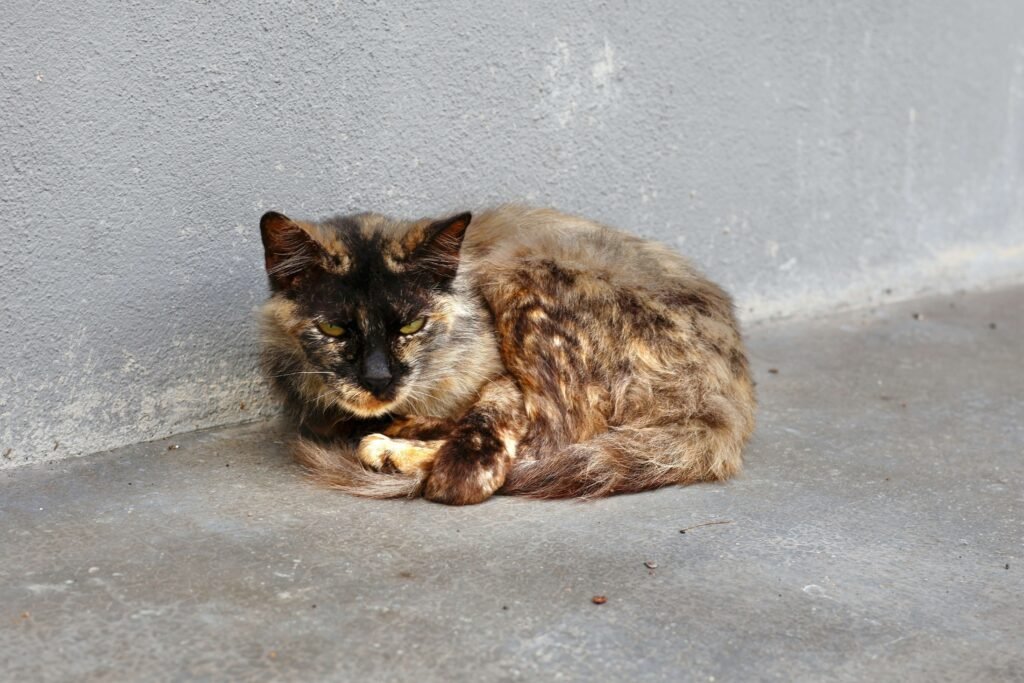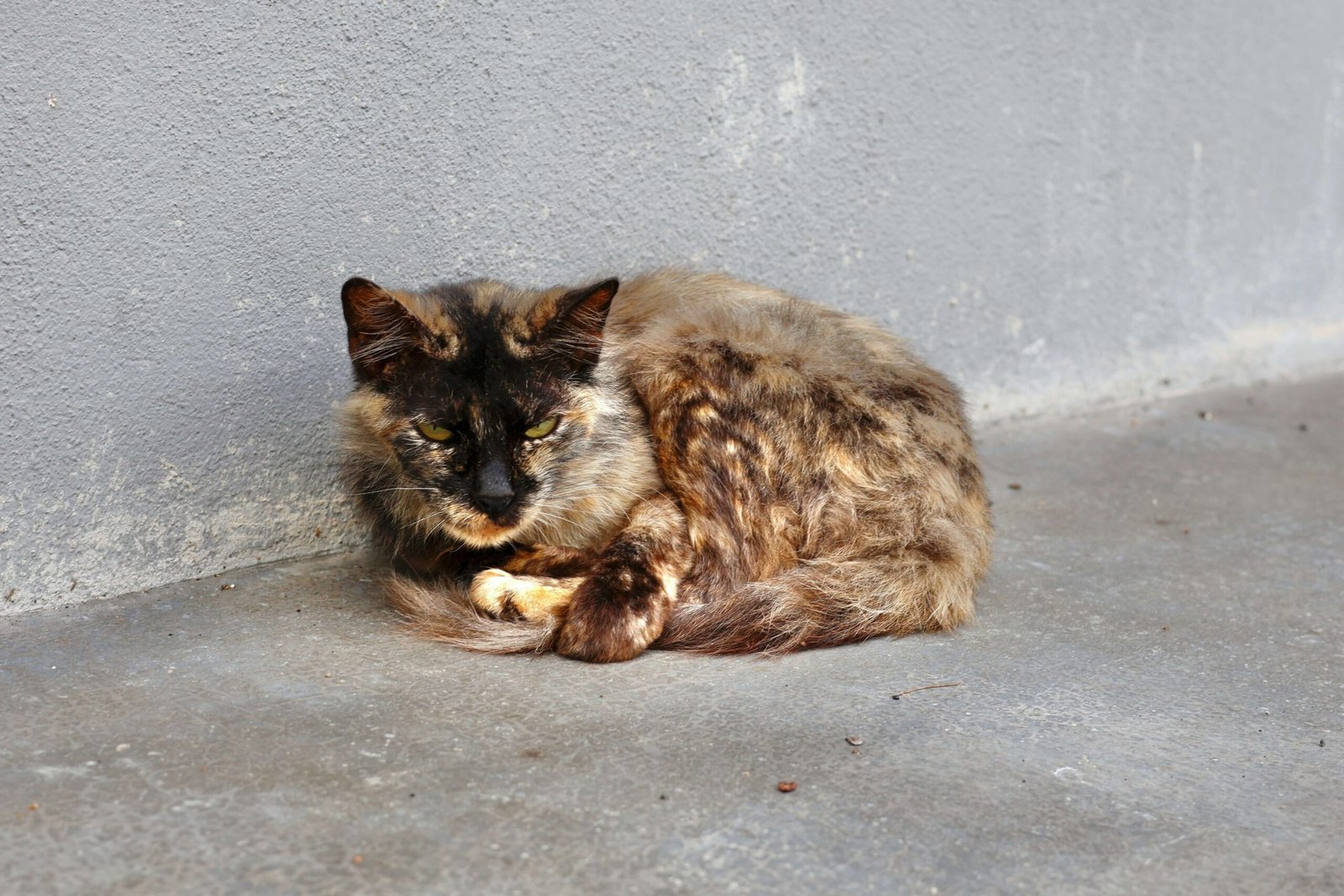How to Apologize to a Cat: Repairing Trust and Strengthening Your Bond
Cats are sensitive creatures, and even the most loving pet owners can sometimes unintentionally upset their feline companions. Whether it’s an accidental step on their tail, a loud noise that startled them, or simply a change in routine, cats can become stressed or withdrawn when they feel wronged. But how do you apologize to a cat? While cats don’t process apologies the way humans do, they are highly attuned to your energy, actions, and efforts to make amends. In this blog post, we’ll explore practical ways to repair trust, understand your cat’s feelings, and strengthen your bond after a misunderstanding or mishap.
Understanding Your Cat’s Emotional Signals
Before apologizing, it’s important to recognize signs that your cat may be upset or stressed. Cats communicate their emotions through body language and behavior. Here are some common indicators:
Flattened Ears : When a cat’s ears are pressed back against their head, it often signals fear or discomfort.
Puffed-Up Tail : A puffed-up tail indicates agitation or anxiety.
Hiding Behavior : If your cat retreats to a secluded spot, they may need time to process their feelings.
Hissing or Growling : Vocalizations like hissing or growling are clear signs of distress or defensiveness.
Avoidance : Cats may avoid interaction if they’re upset, choosing to stay away from people or other pets.
By paying attention to these signals, you can better gauge your cat’s emotional state and respond appropriately. Understanding their perspective is the first step toward making amends.
Steps to Apologize to Your Cat
Apologizing to a cat isn’t about saying “I’m sorry” with words—it’s about showing them through actions that you care and respect their feelings. Here are some steps you can take:
Give Them Space : Allow your cat to retreat and recover without pressuring them to interact.
Use Calm Energy : Approach your cat with slow, gentle movements and a soothing tone of voice.
Offer Treats : Tempt your cat with their favorite treats as a gesture of goodwill and affection.
Engage in Play : Use interactive toys like feather wands or laser pointers to rebuild trust through fun activities.
Pet Gently : If your cat allows it, offer soft, reassuring strokes in areas they enjoy being touched.
These actions demonstrate your respect for their boundaries while gradually rebuilding their trust. Patience is key—cats need time to process and forgive.
Check this guide 👉Why Is My Cat Crying Tears? Best 7 Health Tips!
Check this guide 👉Warning Signs Your Cat Is Crying for Help: Best 7 Tips!

Sign of Upset | How to Respond |
|---|---|
Flattened Ears | Speak softly and avoid sudden movements |
Puffed-Up Tail | Give them space and avoid direct contact |
Hiding Behavior | Respect their need for solitude |
Hissing or Growling | Back away calmly and let them calm down |
Avoidance | Offer treats or toys to encourage bonding |
Building Trust Through Positive Reinforcement
Positive reinforcement is a powerful tool for repairing trust and strengthening your bond with your cat. Here are some ways to use it effectively:
Reward Calm Behavior : Offer treats or praise when your cat shows signs of relaxation around you.
Create Routine : Cats thrive on predictability; maintaining a consistent schedule helps them feel secure.
Introduce New Activities : Try new toys or games to create positive associations and distract from past incidents.
Provide Safe Spaces : Ensure your home has cozy hiding spots where your cat can retreat if needed.
Be Patient : Trust takes time to rebuild, so avoid rushing the process or forcing interactions.
By focusing on positivity and consistency, you can help your cat feel more comfortable and confident in your presence.
Common Mistakes to Avoid When Apologizing
While your intentions may be good, certain actions can unintentionally worsen the situation. Here’s what to avoid when trying to apologize to your cat:
Forcing Interaction : Don’t pick up or pet your cat if they’re clearly avoiding you.
Raising Your Voice : Loud noises or scolding will only increase their stress levels.
Ignoring Their Signals : Disregarding signs of distress can damage trust further.
Overwhelming Them : Bombarding your cat with too much attention can feel invasive rather than comforting.
Expecting Immediate Forgiveness : Cats need time to process emotions, so don’t rush their recovery.
Avoiding these pitfalls ensures that your apology feels genuine and respectful to your cat.
Recognizing Your Cat’s Unique Personality
Every cat has a distinct personality, and understanding their individual traits can help you tailor your apology approach. Here are some key points to consider:
Social vs. Independent Cats : Some cats crave attention, while others prefer solitude—know which type your cat is.
Sensitivity Levels : Highly sensitive cats may take longer to recover from stress or upset.
Play Preferences : Understanding whether your cat enjoys interactive play or quiet cuddles can guide your apology efforts.
Routine Dependence : Cats who rely heavily on routines may feel more unsettled by changes or disruptions.
Past Experiences : A cat’s history, such as previous trauma or neglect, can influence how they respond to stressful situations.
By recognizing these aspects of your cat’s personality, you can adapt your apology strategy to suit their unique needs and preferences.
Creating a Calming Environment
A peaceful environment plays a crucial role in helping your cat feel safe and secure after an upsetting incident. Here are some ways to create a calming atmosphere:
Reduce Noise : Minimize loud sounds like vacuuming or music to avoid further startling your cat.
Use Pheromone Diffusers : Products like Feliway mimic natural feline pheromones, promoting relaxation.
Dim the Lights : Soft lighting can help soothe your cat and reduce sensory overload.
Provide Comfort Items : Offer familiar blankets or toys that carry your cat’s scent for reassurance.
Limit Visitors : Keep interactions with strangers or other pets to a minimum during this time.
A calm and supportive environment helps your cat feel more at ease, making it easier for them to forgive and reconnect with you.
Learning from Past Mistakes
Apologizing to your cat is not just about fixing the current situation—it’s also an opportunity to reflect on how you can prevent similar incidents in the future. Here are some lessons you can take away:
Be Mindful of Their Space : Respect areas where your cat feels most comfortable and avoid intruding unnecessarily.
Handle Them Gently : Always approach your cat with care to avoid accidental injuries or discomfort.
Monitor Stress Triggers : Identify specific triggers that upset your cat and work to minimize them.
Educate Yourself : Learn more about feline behavior to better anticipate and respond to their needs.
Stay Consistent : Maintain predictable routines to provide stability and reduce anxiety.
By reflecting on past mistakes and taking proactive steps, you can foster a stronger, more harmonious relationship with your cat moving forward.
Frequently Asked Questions About Apologizing to Cats
Do cats hold grudges?
Cats don’t hold grudges in the human sense, but they may need time to regain trust after feeling upset.
How long does it take for a cat to forgive?
The timeline varies depending on the cat’s personality and the severity of the incident, but patience is essential.
Can I use treats to apologize?
Yes, offering treats can be a great way to show affection and rebuild trust.
What if my cat doesn’t seem to forgive me?
Continue giving them space, using positive reinforcement, and respecting their boundaries—they’ll come around in time.
Should I punish my cat for being upset?
No, punishment will only escalate stress and damage your relationship further. Focus on kindness instead.
Strengthening Your Relationship After an Apology
Apologizing to a cat isn’t just about addressing a specific incident—it’s an opportunity to deepen your understanding of their needs and emotions. By respecting their boundaries, using positive reinforcement, and giving them time to heal, you can repair trust and strengthen your bond. Remember, cats are incredibly forgiving creatures, and with patience and love, they’ll return to their usual affectionate selves. So the next time you find yourself needing to apologize, approach the situation with empathy and care—it’s one of the many ways we can honor the special connection we share with our feline friends.
Do Maine Coon Cats Shed? Best 7 Expert Tips! Discover expert advice on managing shedding, grooming routines, and keeping your Maine Coon's coat healthy and your home fur-free.
Maine Coon Sphynx Cat: Best 7 Expert Tips! Discover expert advice on care, grooming, and living with this unique hybrid for a happy and healthy feline companion.
Maine Coon Ragdoll Cat Mix: Best 7 Expert Tips! Discover expert advice on care, grooming, and living with this affectionate hybrid for a happy and healthy feline companion.
Diluted Calico Maine Coon: Best 7 Expert Tips! Discover expert advice on care, temperament, and living with this unique feline for a happy and healthy companion.





